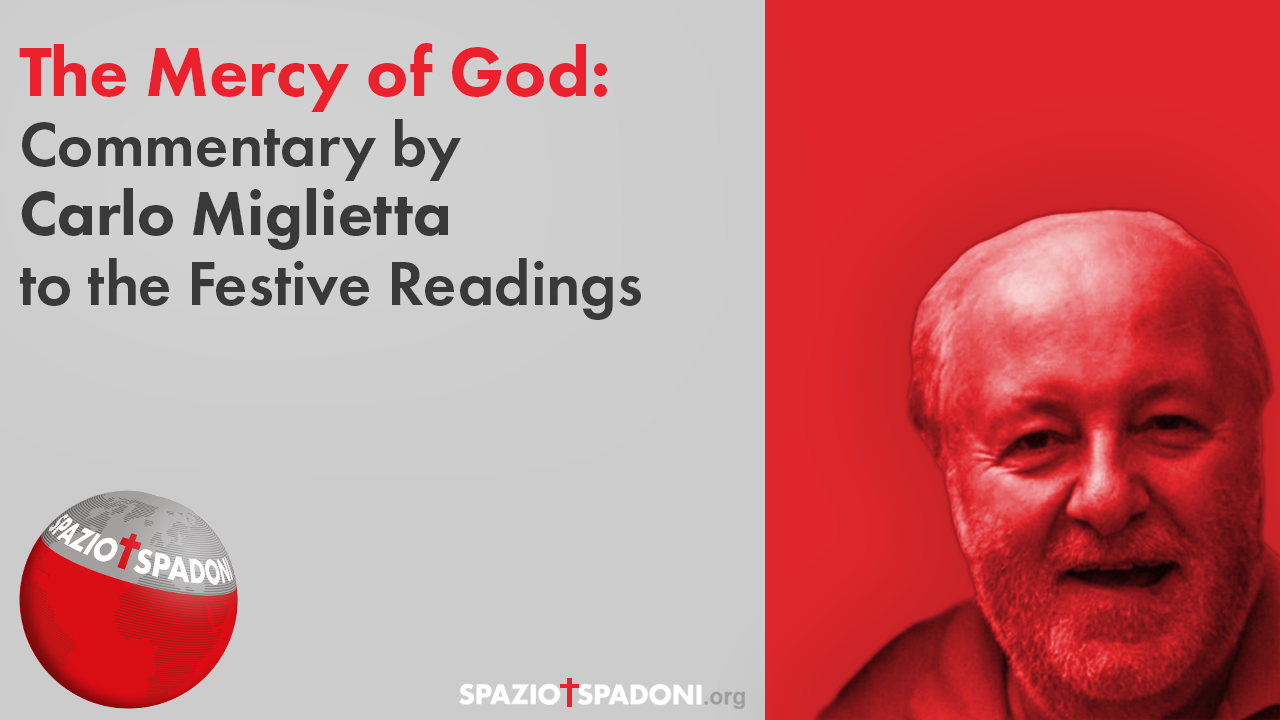
V Sunday Of Lent B – God Heals Us Today In Jesus Christ
Readings: Gb 7:1-4.6-7; 1 Cor 9:16-19.22-23; Mk 1:29-39
Job’s cry, “Why the pain?”
“Why do I suffer? This is the rock of atheism” (G. Bùchner): God takes up the challenge and in the Bible inspires an entire book to deal with the problem of evil: the book of Job (first reading). This righteous and pious sheik, who has become the prototype of every sufferer, cries out to God all the questions of contemporary atheism: why does God allow evil (Job 3:20-23)? Why the innocent pain and prosperity of the wicked (24:1-6)? Why so much evil in history (12:17-25)? Why the death (14:1-12)? Why God’s silence (24:12)? Why does God not come to our aid in sorrow (23:8-9)? God seems not to answer Job’s questions directly, but reveals to him that all creation is not abandoned to itself, but is formed and governed by God’s”‘esa'” (38:2), his loving plan, his mysterious saving plan (38-39): and the God who thinks of the birth of the chamois (39:1-3) and the raven’s young (38:41), all the more provides for man, his joy (Zeph 3:17-18; Is 62:5). Job is silent in the face of mystery (Job 40:4-5), and concludes, “I knew you by hearsay, but now my eyes see you” (Job 42:5). Here the book ended: a later editor, scandalized, added a “happy ending,” in which Job regained his health and, multiplied, his former riches (Gb 42:10-17).
The Cross of Christ, God’s answer to the drama of pain
But this is the great message of the book: God does not heal Job, but comes down from the heavens to come beside him, to sit on his ash heap (Job 2:8) or, as tradition would have it, on his dunghill. Job experiences the presence of God at his side in sorrow, a God who stands beside man to listen to him, to console him, to share his pains and sufferings: it is already the experience of the “God with us,” the “Emmanuel” (Mt. 1:23), prophecy of the incarnation of the Son, by which God stands in solidarity with man to the point of taking upon Himself all the evil, suffering, and limitation of the world, even to the point of death, to destroy them forever in the resurrection (Phil. 2:5-11). This is why the Gospels insist so much on presenting Jesus to us as a thaumaturge and exorcist (Mark 1:29-34: third reading): his marvelous healings are the revealing sign of his essence as Savior, of God’s bending over man to deliver him from pain. And therefore to accomplish a healing Jesus always demands faith in him (Mk 5:34, 36; 6:5-6): total salvation, spiritual and physical, comes only from adherence to him.
Jesus alone heals us
To this world that has now substituted the concept of health for that of salvation, and that chases everywhere gurus and gurus who promise healings, we must forcefully preach, making ourselves also “servants of all, weak with the weak, all things to all” (1 Cor. 9:16-23: second reading) that only Jesus is the healer. But this “Glad Tidings” is not only about eschatology, the last times: Jesus heals us already today! He is the light (Jn. 1:9) that dispels our darkness, the truth, that overcomes our ignorance, the life, the enemy of all sickness and disharmony (Jn. 14:16). His love already dissolves our fears (Mt 6:25), our anxieties about tomorrow (Mt 6:34); his forgiveness recomposes our inner unity, overcoming our schizophrenias and dissolving the divisions among us; filling us “with his thought” (1 Cor. 2:16), he makes us lay down the “sadness of the world” (2 Cor. 7:10), and gives us his peace (Phil. 4:7-9) even in suffering; and above all, he is always at our side (Mt. 28:20), with his marvelous power (Mk. 16:17-18). It is to us today that Jesus says, “Come to me, all you who are weary and oppressed, and I will give you rest” (Mt 11:28-29).
